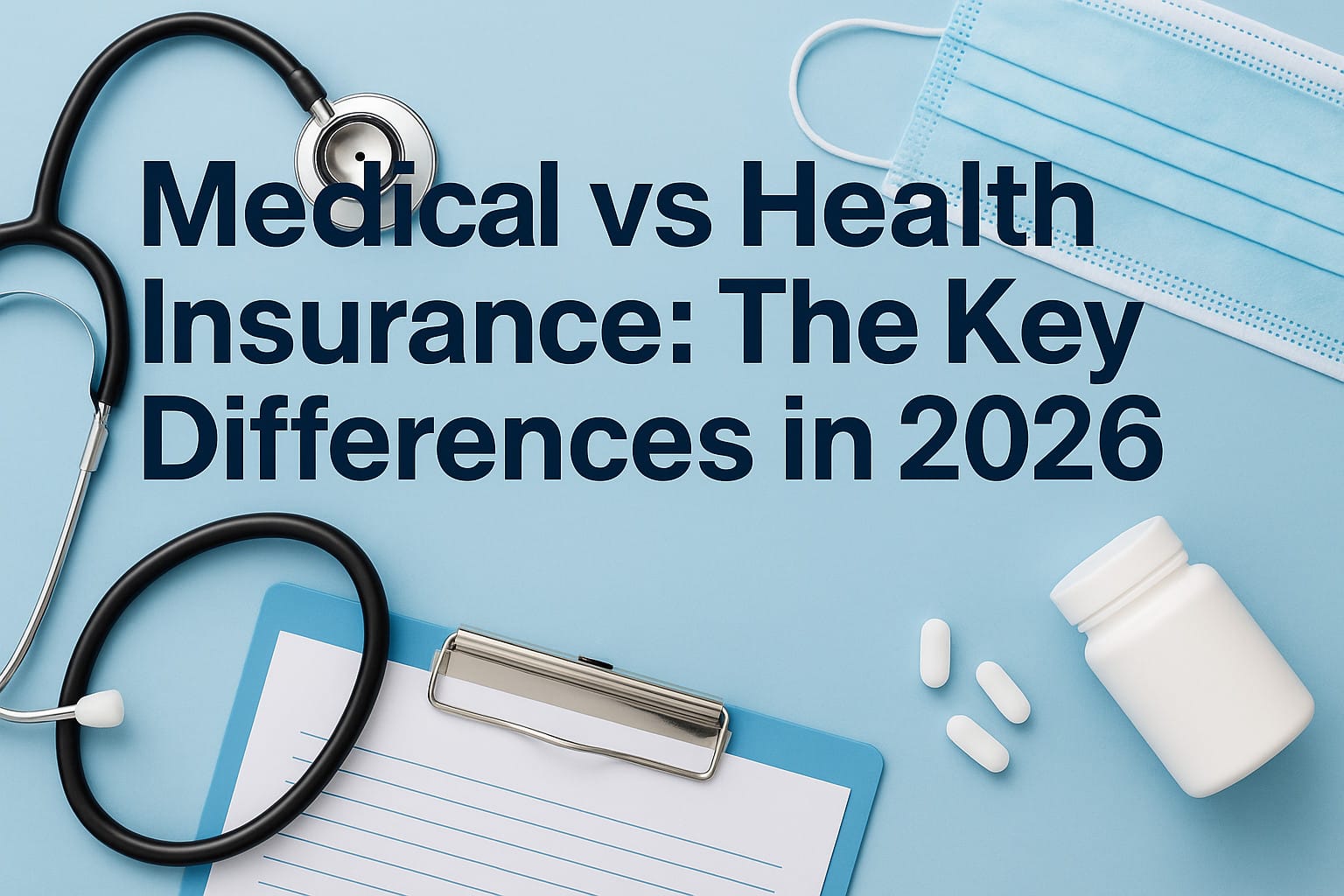Health insurance is very important in the UAE because it helps protect people from high medical costs. However, many people need clarification because of the technical terms used in policies. Understanding these terms is crucial to make sure you get the right coverage and know what to expect. This guide will explain the most important heath insurance terms everyone in the UAE should know. By understanding these terms, you can make better choices about your health insurance and feel more confident about your coverage. It’s all about making health insurance simpler and easier to understand for everyone.
Most important health insurance terms you should know about in the UAE:
Get familiar with these important health insurance terms to make better decisions about your coverage and avoid unexpected costs.
| Term | Explanation | Key point |
| Premium | The amount you pay to have health insurance. | Regular payments to keep your insurance active. |
| Deductible | The amount you pay yourself before your insurance starts covering costs. | You pay this amount first before insurance covers costs. |
| Co-payment | A small amount you pay for a doctor’s visit or service. | Small payments for certain services. |
| Network | A group of hospitals and clinics that your insurance company works with. | Using in-network providers saves money. |
| Policy exclusions | Things your insurance doesn’t cover, like dental work or cosmetic surgeries. | Check your policy to know what isn’t covered. |
| Pre-existing condition | A health issue you had before getting new insurance. | Declare these to avoid claim problems later. |
| Claim | A request to your insurance company to pay for medical bills. | Keep bills and documents for claims. |
| Coverage limit | The most your insurance will pay for certain services. | Know your policy’s limits to avoid extra costs. |
| Waiting period | The time after starting insurance when some things aren’t covered. | Plan around the waiting period. |
| Reimbursement | When your insurance company pays you back for medical bills, you pay yourself. | Keep all original bills for reimbursement. |
| Out-of-pocket maximum | The most you will pay yourself for covered services in a policy period. | The maximum amount you pay for covered services in a year. |
| In-network and out-of-network | In-network means hospitals or doctors have agreements with your insurance; out-of-network does not. | In-network costs less, and out-of-network costs more. |
| Sum insured | Your insurance will pay the maximum amount per year for your medical expenses. | The total coverage amount is for one year. |
| Third-party administrator (TPA) | A company that helps manage health insurance claims. | TPAs help process claims and handle paperwork. |
| Cashless claim | When your insurer pays the hospital directly, you don’t pay upfront. | No need to pay out of pocket for hospital bills. |
| No claim bonus (NCB) | A reward for not making any claims during a policy year, often reducing the next year’s premium. | Discount on premium for no claims. |
| Network hospitals | Hospitals that have agreements with your insurance company to provide services at lower rates. | Lower costs at network hospitals. |
| Top-up plans | Extra coverage you can buy if your current insurance has a low limit. | Additional coverage beyond your main policy. |
| Add-on covers / optional covers | Additional benefits you can add to your policy, like dental or maternity coverage. | Provides extra benefits not in the basic policy. |
| Restoration benefit | Restores your sum insured if it gets used up during the policy period. | Resets coverage limit if you use it all. |
| Outpatient department treatment (OPD) | Covers medical expenses for treatments where you don’t stay overnight. | Covers day-to-day doctor visits and treatments. |
| In-patient (IP Services) | Covers medical expenses when you are admitted and stay overnight in a hospital. | Covers hospital stays and related treatments. |
| Portability | Allows you to switch insurance providers without losing benefits. | Change insurers without losing coverage benefits. |
| Grace period | Extra time is given to pay your premium if you miss the due date. | Keep your policy active even if you pay late. |
Here’s how you can choose the right health insurance in the UAE:
- Know your needs: Consider your needs, including your family size, medical history, and preferred healthcare facilities.
- Understand the coverage: Look closely at the policy, including what is included and excluded.
- Compare plans: Use comparison tools or talk to an insurance broker for the best plan.
- Check the network: Ensure your preferred doctors and hospitals are in the insurance provider’s network.
- Consider the costs: Don’t just look at the premium; consider other costs like deductibles, co-pays, and coinsurance.
- Read the policy thoroughly: Focus on exclusions, waiting periods, policy limits, etc.
- Ask for clarification: If you don’t understand any terms or conditions, ask your insurance provider or broker to explain them.
What’s the final takeaway?
Knowing these important health insurance terms can help you understand health insurance better in the UAE. When you know these terms, you can make smarter choices about your health coverage and money. This knowledge helps you pick the right plan, avoid surprise expenses, and make sure you and your family have the right coverage. By learning about these terms, you can make better decisions about your health insurance, leading to better health and financial security for you and your family.
At InsuranceMarket.ae, we offer insights and resources that can deepen your understanding and help you make confident decisions about your health insurance, ultimately securing better health outcomes and financial peace of mind for you and your loved ones.
Want to dive deeper? Check out our guide on how health insurance works in the UAE Need tips on making claims? Read our guide on how you can make a cashless health insurance claim in the UAE.
Looking for the top insurance providers? Discover our recommendations for the best health Insurance Companies in Dubai.
Frequently Asked Questions (FAQs):
Q. What does UAE health insurance cover?
In the UAE, health insurance must be bought from an approved local insurance company, either by your employer or by you as an individual. The basic insurance plan must cover hospital stays, emergencies, regular doctor visits (both general and specialist), maternity care, tests, and prescribed exams.
Q. Can parents be included in a Family Floater Health Insurance Plan?
Yes, some insurance companies in the UAE let you add parents to a family floater plan. However, the premium might be higher because of their age and possible health issues.
Q. What happens if we use up the sum insured?
If the sum insured is used up, you can’t make any more claims during that policy period. But some insurers offer a ‘restore benefit’ that brings the sum insured back once it’s used up.
Q. What is the grace period for health insurance in the UAE?
Health insurance companies in the UAE usually give you 30 days to renew your policy after it expires.







